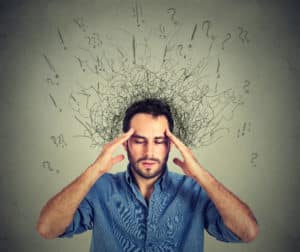Many individuals who struggle with addiction want to know the best way to overcome addiction. It’s common to think that overcoming an addiction comes down to one simple step or one change you can make. However, to overcome addiction, you must make several changes and work daily to maintain your sobriety.
Thankfully, there are many ways to overcome addiction, all starting with professional treatment. Admitting that you need help to overcome an addiction is the best way to overcome addiction of any kind, including dual diagnosis situations where you have an addiction and co-occurring mental health disorders.
Treatment facilities like Water Gap Wellness Center can work with you to find a schedule that fits your current personal and professional obligations while still giving you time to participate in therapy and holistic treatment to overcome addiction.
Water Gap Wellness Center is a Pennsylvania mental health treatment center that can help. Learn more about our outpatient mental health services today.
Overcome Addiction with Therapy
Therapy provides treatment to resolve emotional or mental health issues. You will find many types of therapy at each drug and alcohol rehab center or mental health clinic you are considering.
The most common form of therapy is psychotherapy. This is also called “Talk Therapy.” Talk therapy involves a situation where you speak with a trained therapist who can help you better understand your behaviors and your emotions.
In these sessions, you’ll learn how to deal with any issues involving mental health disorders or addiction by learning coping skills or working to eliminate certain symptoms.
CBT
Cognitive behavioral therapy, CBT, might be a form of treatment used by your therapist. CBT helps you better understand the relationship between your feelings and your thoughts and behaviors.
What CBT Can Do
- Learn more about the relationship between your thoughts and your behavior
- Learn how to uncover negative thought patterns
- Discuss how your thought patterns lead to self-destructive beliefs or actions
- Develop constructive, positive thought patterns
- Help to change your outlook and your behavior
During sessions, your trained cognitive behavioral therapist will work with you to uncover any unhelpful thought patterns you might have.
You’ll work with your therapist to better understand how your unhelpful thought patterns have contributed to harmful behaviors or incorrect assumptions and beliefs in your daily life.
Over the span of several weeks, you’ll move through journaling activities and other homework at the end of each session. In some cases, you might also share things you have learned in group therapy sessions. Eventually, you’ll work with your therapist to develop healthier ways of thinking to contribute to a positive outlook and help you change your behavior.
What CBT Can Treat
- Anxiety disorders
- Trauma
- Bipolar disorders
- Depression
- Substance abuse
Overcoming an Addiction with Holistic Treatment
Many clients benefit from holistic treatment in addition to individual and group therapy.
Art Therapy
Art therapy can improve cognitive function, self-awareness, self-esteem, emotional resilience, and social skills, allowing clients to resolve distressing emotions or conflicts in their lives much easier.
What Art Therapy Can Treat
- Depression
- Anxiety
- PTSD
Meditation
Meditation is something that you can do no matter where you are. Too often, people think they don’t have time to meditate, but nothing could be further from the truth. Everyone has a few minutes to scroll through old text messages, binge-watch something on Netflix, check the weather in a random city while waiting for their bus, or scroll through Facebook to pass the time.
Those few minutes every day could be better spent with walking meditation, eating meditation, driving meditation, or any other form of focused meditation.
What Meditation Can Treat
- Personality disorders
- Depression
- Anxiety
- Bipolar disorder
- Substance abuse
- PTSD
Mindfulness
Regular mindfulness practice can help relieve symptoms of anxiety or depression often associated with emotional dysregulation or the all-too-common attempt to numb or push away uncomfortable emotions with things like television, eating, or substance abuse.
What Mindfulness Can Treat
- Personality disorders
- Depression
- Anxiety
- Phobias
- Pain management
- Schizophrenia
- Bipolar disorder
- Substance abuse
- PTSD
Music Therapy
Music therapy is one of many ways to overcome addiction during and after treatment. Music therapy can be a viable alternative for people who aren’t comfortable expressing their emotions but might be much more comfortable engaging in physical drumming, listening to music, or singing. It doesn’t require any particularly high set of skills, but it can provide an environment where you’re much more relaxed and connect with people on a deeper, more intimate level.
Yoga
Yoga practices are common group activities that provide the social benefits of group therapy in a slightly less restrictive setting compared to a talk therapy session. Moreover, many clients who participate in yoga during recovery or mental health treatment can continue the practice without the need for insurance coverage or high out-of-pocket expenses. Many forms of yoga make it easy for clients to find a level and style they prefer for ongoing assistance.
What Yoga Can Treat
- Depression
- Anxiety
- Bipolar disorder
- Substance abuse
- PTSD
There are many ways to overcome addiction, and with Water Gap Wellness Center, we give you access to many of the best ways to overcome addiction in each of our programs.
Contact our team at (877) 414-3281 to learn more about overcoming an addiction.




